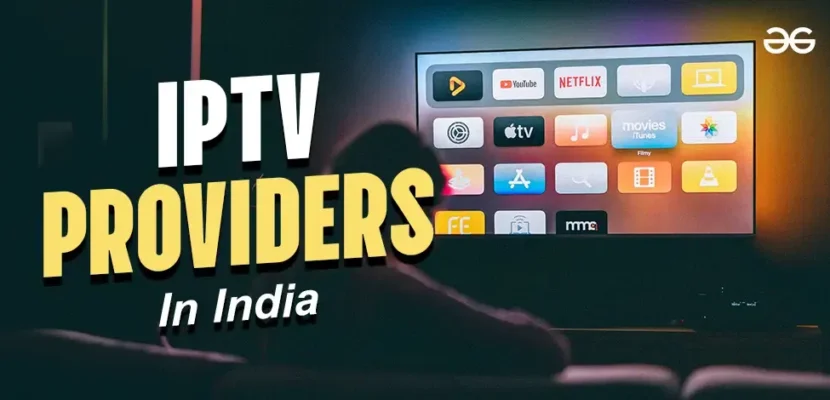The world of television viewing has undergone significant changes over the last two decades, driven largely by the advent of new technologies. One of the most impactful innovations is IPTV, or Internet Protocol Television, which is revolutionizing how people access and consume TV content. Unlike traditional cable or satellite services, Iptv France delivers television programming through the internet, offering viewers a level of flexibility and convenience that was once unimaginable. This article explores the evolution of IPTV, its advantages, and its future potential in transforming the entertainment industry.
What is IPTV?
IPTV stands for Internet Protocol Television, which is a method of streaming television content over the internet. Unlike traditional cable or satellite television, where signals are transmitted through physical cables or satellites, IPTV uses internet protocols to deliver TV shows, movies, live sports, news, and other forms of media to users.
IPTV is typically offered as part of a subscription service, where users can choose from a variety of packages that include live channels, on-demand content, and even exclusive programming. Unlike traditional television systems, which rely on broadcasting signals, IPTV makes use of broadband internet connections to deliver content.
How IPTV Works
IPTV operates by converting television content into digital data that can be sent over the internet. This data is transmitted via IP networks, which makes it possible for users to watch content on their TVs, computers, smartphones, and other devices. There are three primary types of IPTV services:
- Live TV Streaming – Just like conventional television broadcasts, live IPTV channels offer real-time viewing. These can include news channels, sports events, and other live broadcasts.
- Time-Shifted TV – This allows users to watch TV shows at a time that is more convenient for them. Users can pause, rewind, or fast-forward content, making the viewing experience more flexible.
- Video on Demand (VOD) – IPTV also offers vast libraries of on-demand content, including movies, TV shows, and documentaries. Users can select the content they wish to watch and enjoy it at their own pace.
Key Advantages of IPTV
- Convenience and Flexibility IPTV allows users to watch content on various devices, including televisions, laptops, smartphones, tablets, and gaming consoles. This eliminates the need for a single TV in the home and allows for multi-screen viewing. Additionally, IPTV offers the convenience of streaming on-demand content at any time.
- Cost-Effectiveness Many IPTV providers offer competitive pricing compared to traditional cable or satellite providers. The ability to tailor subscriptions to specific needs (e.g., paying only for the channels or content you actually watch) also contributes to cost savings. Some providers also offer bundles with internet and phone services, further reducing monthly expenses.
- High-Quality Streaming IPTV services often provide high-definition (HD) or even 4K-quality content. Because IPTV relies on broadband internet, users can enjoy a more consistent streaming experience with less interference compared to traditional satellite or cable systems.
- Variety of Content IPTV gives users access to a wider variety of content, including international channels, niche programming, and exclusive content. As an internet-based service, IPTV is not bound by the geographical limitations often present in traditional broadcasting systems, opening doors to content from all over the world.
- Interactive Features IPTV platforms often offer additional interactive features like on-screen guides, integrated social media, and the ability to interact with content in real time. This creates a more engaging viewing experience, making IPTV more than just a passive television service.
IPTV vs. Traditional Cable and Satellite TV
While traditional television delivery methods like cable and satellite still dominate the market, IPTV is steadily gaining ground. Traditional systems often require installation of bulky hardware, which can be cumbersome and costly. Additionally, users are locked into a fixed set of channels with little room for flexibility.
In contrast, IPTV offers a more dynamic experience, where users can choose their preferred content packages, watch on multiple devices, and enjoy a customized viewing experience. IPTV also makes it easier to access content that might otherwise be geographically restricted, such as international sports leagues or niche television channels.
One of the key differences is that IPTV relies on an internet connection. Therefore, users need a stable and fast broadband connection to enjoy smooth streaming. In areas with limited or unreliable internet access, traditional cable and satellite services may still be more practical.
The Future of IPTV
The future of IPTV looks promising as more consumers embrace internet-based services. IPTV technology is continuously evolving, with improvements in video compression, streaming quality, and user interface design.
As 5G networks become more widespread, the potential for IPTV to reach new heights of accessibility and quality increases. With faster internet speeds and lower latency, 5G will allow IPTV services to deliver even better streaming experiences, particularly for mobile users who want to access high-definition content on their phones or tablets.
Moreover, the rise of smart TVs with built-in IPTV capabilities and cloud-based DVR services is expected to make IPTV more mainstream. The proliferation of subscription-based services like Netflix, Hulu, and Amazon Prime Video has already paved the way for IPTV to become a preferred choice for many consumers.
Challenges and Considerations
Despite its many advantages, IPTV does face some challenges. The most prominent issue is the reliance on high-speed internet. Without a stable and fast broadband connection, users may experience buffering, lower video quality, or intermittent service. Additionally, since IPTV operates over the internet, it is vulnerable to cyber threats, making robust security measures essential for both providers and consumers.
Another concern is the legality of some IPTV services. While legitimate providers offer licensed content, there are numerous illegal IPTV services that offer pirated streams of premium content. This creates challenges for both content creators and consumers who may unknowingly access unauthorized services.
Conclusion
IPTV is undoubtedly shaping the future of television viewing. With its flexibility, cost-effectiveness, and superior quality, it is rapidly transforming the entertainment landscape. While there are still some challenges to overcome, the technology is advancing at a rapid pace, promising an even more seamless and enjoyable viewing experience for audiences worldwide.
As IPTV becomes more mainstream, consumers are likely to have more options than ever before, with a wide variety of content at their fingertips and a user experience tailored to their individual preferences. Whether you’re watching the latest blockbuster movie on your couch, catching a live sports event on your phone, or enjoying a TV series in HD, IPTV is undoubtedly the future of television.



